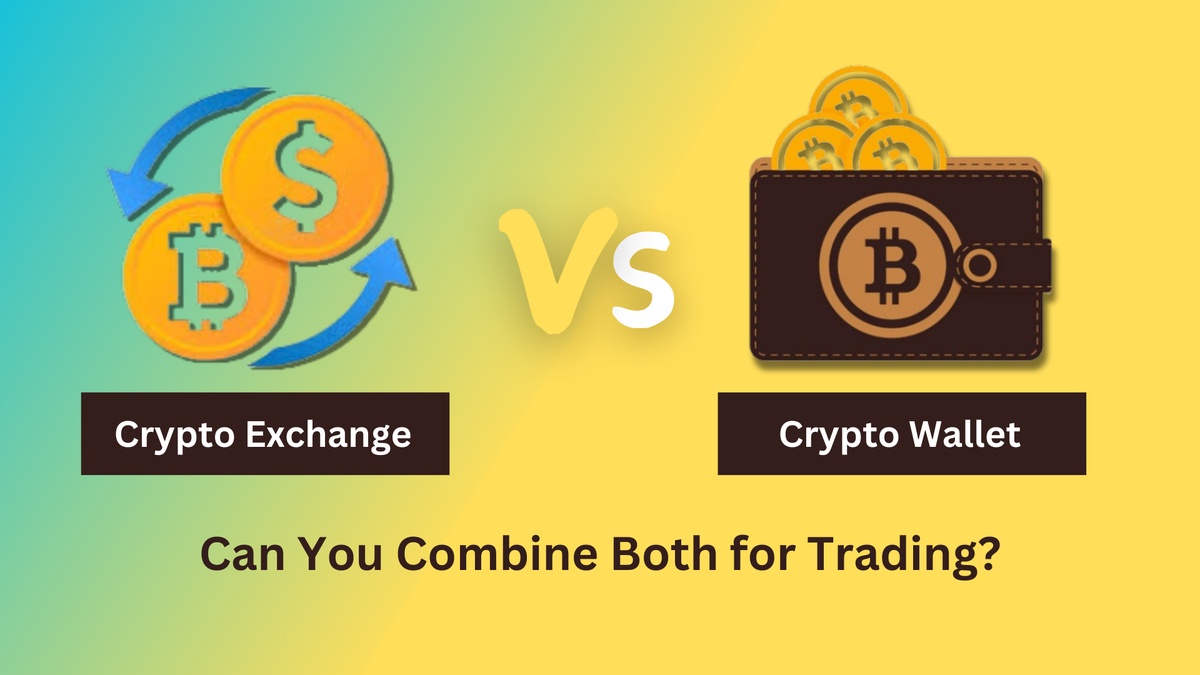As cryptocurrencies continue to gain more popularity, more people want secure ways to buy, sell, store, and handle their digital assets. Crypto exchanges and crypto wallets are two essential tools in the cryptocurrency landscape. Both have different goals and characteristics, even though they both perform important functions. In this article post, we'll look at the main differences between a cryptocurrency exchange and a cryptocurrency wallet. Helping you make informed decisions about your cryptocurrency investments.
Cryptocurrency Exchange: A platform for buying, selling, and trading cryptocurrency:
A cryptocurrency exchange is an online platform where users may buy, sell, and trade different cryptocurrencies. These exchanges act as intermediaries, They facilitate transactions between buyers and sellers while charging fees for their services.
Crypto exchanges are widely divided into two types: centralized and decentralized. Centralized exchanges, such as Coinbase and Binance, are run by a single business or organization that manages user assets, oversees the transactions, and provides support. In contrast, decentralized exchanges function without a central authority and allow users to trade directly with one another. Decentralized exchanges include, for example, SushiSwap and Uniswap.
To utilize a cryptocurrency exchange development, consumers normally need to create an account, go through a Know-Your-Customer (KYC) process, and link their bank account or credit card. After completing these processes, users can deposit fiat currency or cryptocurrencies, make trades, and withdraw their funds.
Cryptocurrency Wallet: A Secure Storage Solution for Your Digital Assets:
A cryptocurrency wallet is a digital instrument for securely storing, sending, and receiving cryptocurrency. Crypto wallets hold the private keys connected with the user's digital assets, not the currencies themselves. Because they allow users to access and manage their cryptocurrency holdings, private keys are essential and should always be kept safe.
There are various types of cryptocurrency wallets, such as hardware wallets, software wallets, and paper wallets. Ledger and Trezor are examples of hardware wallets that were created to safely store private keys offline. They add an additional level of protection against theft and hacking. Software wallets can be installed on a computer or mobile device, and the amount of security varies depending on how they are implemented. Paper wallets include printing the private keys and keeping them in a secure location.
When receiving crypto payments, users must share their wallet’s public address which is similar to a bank account number, so that others can send funds to their wallet.
Primary Differences between them:
The main difference between a cryptocurrency exchange and a crypto wallet is their function. Crypto wallets are made for safely keeping and managing users' digital assets, whilst cryptocurrency exchanges help with the buying, selling, and trading of cryptocurrencies.
Crypto wallets are often more secure than exchanges. Exchanges are at risk of theft and hacking since they store user money and private keys. Wallets particularly hardware wallets offer a more secure solution since they let users store their private keys offline, which lowers the possibility of unwanted access.
Can you use both of them combined to trade?
Yes, you can trade using a cryptocurrency exchange and a cryptocurrency wallet.
To trade cryptocurrencies with a crypto exchange and a crypto wallet, follow these steps:
- Create an account on a cryptocurrency exchange.
- Deposit your cryptocurrencies into your exchange wallet.
- Place a trade order on the exchange.
- Once your trade is executed, your new cryptocurrencies will be deposited into your exchange wallet.
- Withdraw your cryptocurrencies from your exchange wallet to your cryptocurrency wallet.
While you are not trading cryptocurrencies actively, it is advised that you keep them in a wallet. This is because cryptocurrency exchanges are more hackable than wallets.
In conclusion, As a best practice, store your long-term cryptocurrency holdings in a safe wallet, preferably a hardware wallet, and use exchanges to trade and convert your digital assets as needed. Understanding the major differences between cryptocurrency exchange and wallet allows you to make informed decisions about how to secure your cryptocurrency investments and navigate the ever-changing world of digital assets.


No comments yet